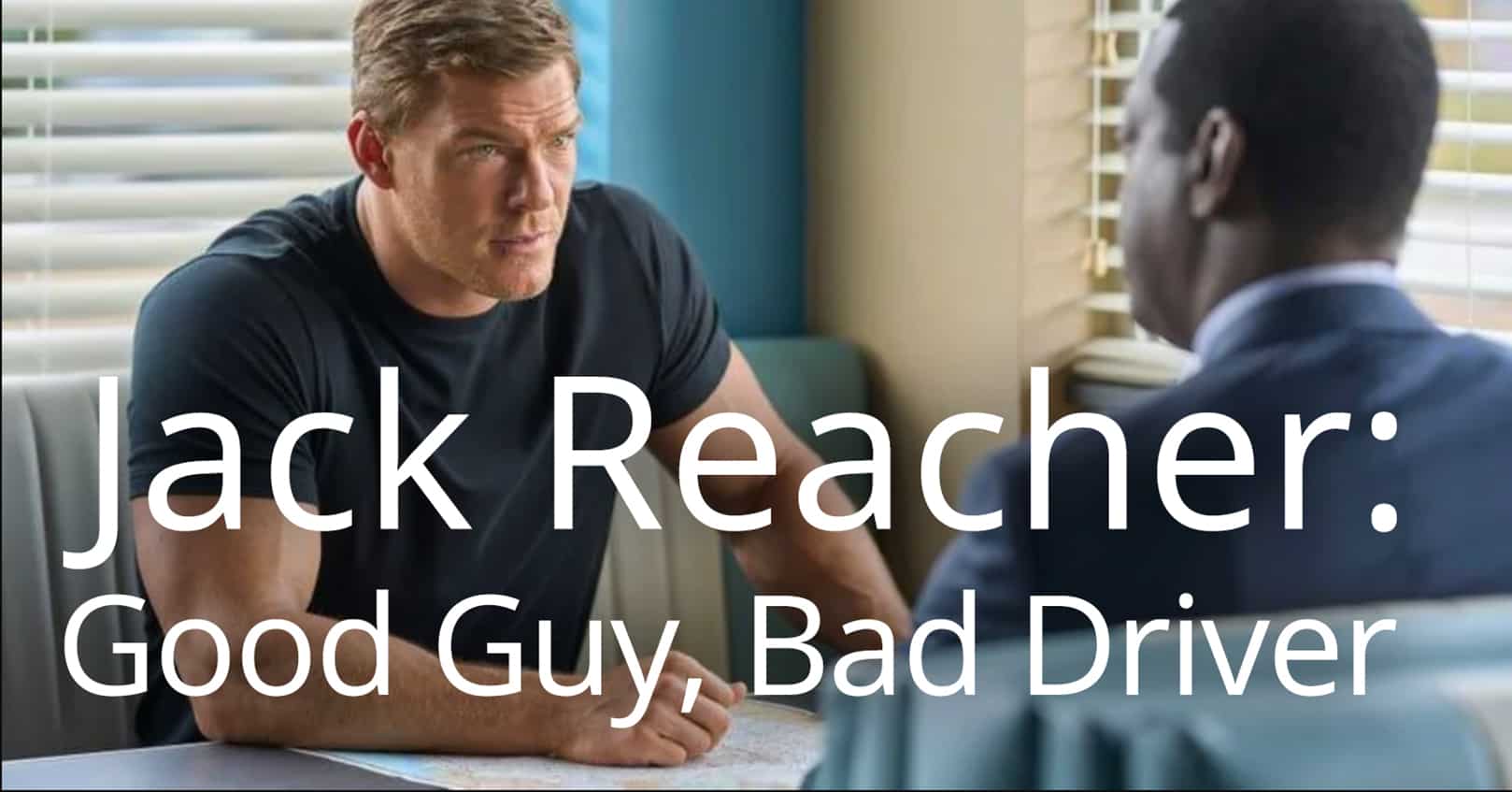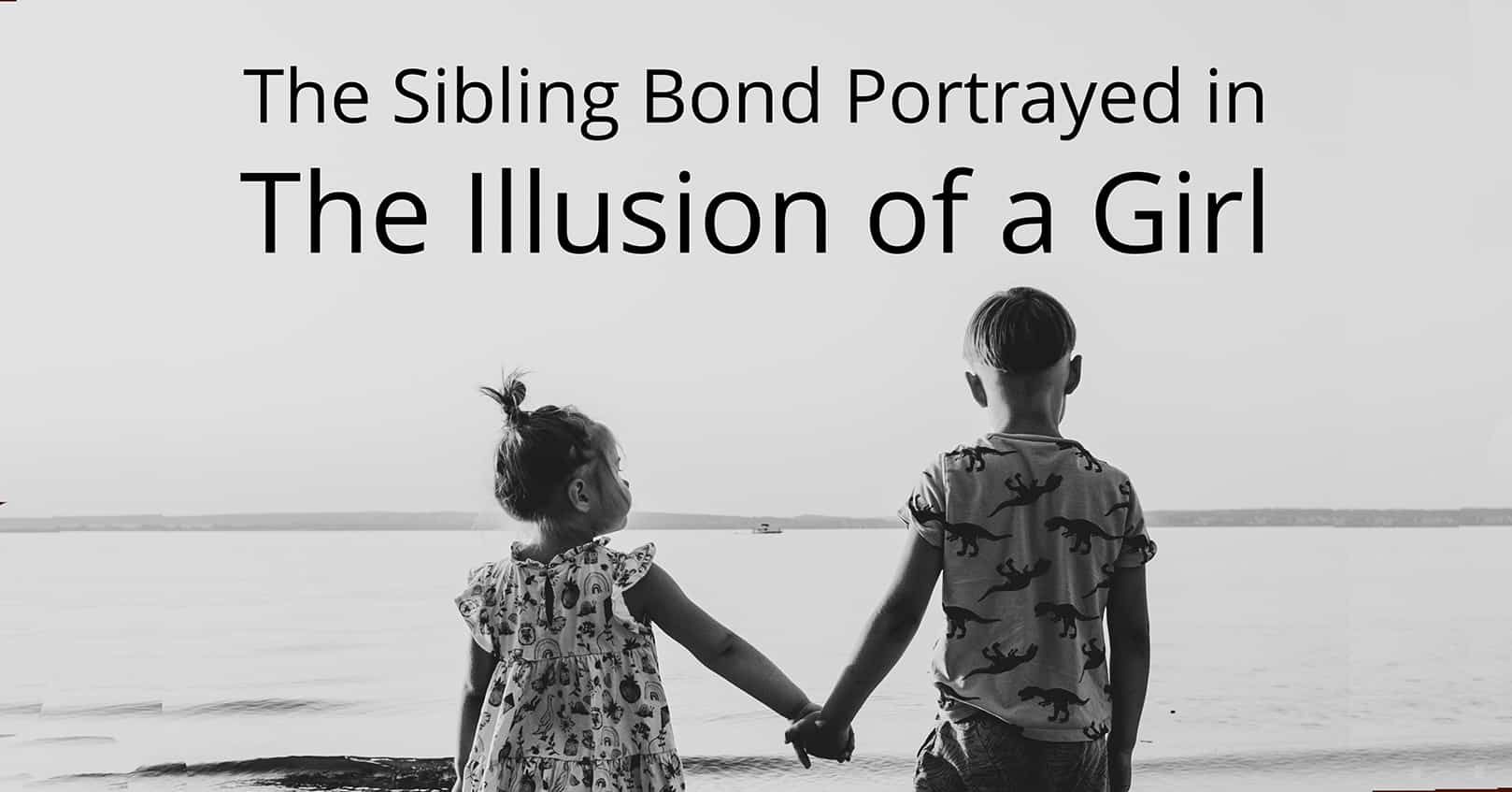
When Lee Child set out to create a new character back in the distant 90s, he decided straight away that he didn’t want the anti-hero type currently in vogue: someone struggling with depression or addiction, getting over a divorce or the death of a child, ridden with guilt about some previous sin. He wanted a hero, a man’s man, someone who could hold his own physically and intellectually, romance the ladies, be a friend to men and dogs, fight well but tread lightly, and make his own way in the world.
Before I continue, let me be clear about one thing: that description would have put me off immediately. I would have put the book down and continued on down the bin. I am not a reader of spy thrillers, military thrillers, or any kind of man’s man thrillers. Not into Tom Clancy, never have been. I tried and failed to read Le Carré. And I can’t stand action movies, either; my predilection for watching grown men pretending to fight on screen having graciously bowed out at the tender age of fourteen.
And yet: Child has succeeded, marvelously—it has been said that there is a Jack Reacher book sold every 9 seconds, somewhere in the world—because he didn’t just go ahead and create some postmodern version of John Wayne. Jack Reacher, an ex-military investigator, roaming the country on foot, solving crimes and connecting with women and then graciously bowing out at the end to hit the open road, has just enough soft spots to force most everybody to like him.
Reacher is a good guy. He cares. He recognizes the daily struggles—the waitress in a bad mood because she’s a single mother of three, the accountant who has been beaten down by, well, accounting, the bureaucrat who’s given up on the system and just can’t wait for that government pension to kick in—and he acts accordingly. He’s kind. He says please and thank you. He’s not a bigot. He’s not a sexist. He takes people at face value and doesn’t judge their flaws. He’s well read but shows it only rarely, and when he does, it is done with finesse, as an afterthought, not a confrontation. Any mansplaining he might do is directed toward men. Never women.
He also gets into fights. Lots of them. He kills people as well. Not a few. But only those who deserve it.
Needless to say, trying to film all of this without ending up with either a slightly more intelligent Forrest Gump flick or a punch it out, shoot ‘em up snafu would be a daunting task, for one thing, because it’s quite difficult to keep the plot moving on screen when you’re bogged down in a character’s thought processes. The audience is also very different: like most readers, I’m a different viewer, and my experience of crossing the streams between print and film media has been disastrous. The book is always better than the movie.
A film version of Jack Reacher has been tried twice before, with Tom Cruise at the head. Cruise did a decent job, all points considered. But the issue with Tom Cruise, other than the fact that book Jack Reacher is 6’5” and weighs 250 pounds, is that Tom Cruise movies are about Tom Cruise. That down-to-earth, savoir faire Jack Reacher falls by the wayside, and we’re left with a lot of grown men pretend fighting and a main character who lacks authenticity and grace.
So, it was not without much skepticism and quite a bit of hand-wringing that news of a new Amazon Prime Reacher series flashed through the webs about a year and a half ago. Like an approaching hurricane, social media users mapped coordinates and pathways, speculating just exactly when it would hit and how big the disaster would be.
Then Amazon announced about a year ago that Alan Ritchson would be playing the main role, and the opinion at that stage changed course. It was generally positive. Ritchson, at 6’2”, certainly is closer to Reacher in height than Tom Cruise, and he has the physique to match. He also has the look, which has been variously described as “rugged,” and “not especially bad-looking, not especially good-looking, either.”
But would he be able to pull it off? Would the writers, producers, and directors of the series let him? Moreover, since Ritchson was at that point something of an unknown variable, did he have the acting skills needed to be a convincing Reacher? Failing that, would he wind up portraying the sasquatch side of Reacher without the intellect and emotion? Would he be a man’s man, friend to women and to the downtrodden and to dogs? And more to the point: would those producers and writers and directors get the story right? Or would this be yet another bad filming of a bunch of good books, rendered flat and soulless on screen, gone the route of so many Stephen King epics?
The first season was to be the first book, Killing Floor, with the much-hinted-at caveat that, if the first go at it did well, then the next season would be book 2, the next book 3, and so on. Quite an ambitious undertaking almost along the lines of the Harry Potter series.

When the series debuted in its entirety on February 4 of this year, developed for television by Nick Santora, who has worked, among other productions, on Law & Order, The Sopranos, Prison Break and Lie to Me, I was nearly a nervous wreck. I made popcorn, quieted the dog, and sat down with my wife (not a Jack Reacher fan) to what might have been a decent Friday night, or a vast disappointment.
The first episode opens with Reacher walking along a highway, which is how most, if not all, of Lee Child’s books begin. A lone man, walking into a small town, pulled by the whims of fate, the weather, and whoever might be brave enough to pick up a hitchhiker who looks a bit like a thinner, less green version of the Incredible Hulk. Looking for shelter and sustenance. Hoping for the best, preparing for the worst.
He barely has time to sit down at a diner, order coffee and Georgian peach pie, before the cavalry arrives to arrest him for murder.
And so it begins. There are false accusations, more murders, a bit of embezzlement, prison cells, a woman detective, a man detective on the run from who-knows-what in Boston, more crime, corruption, and, of course, a whole lotta fighting.
And there are thoughts. Feelings. Expressions of emotion. Loss and joy and redemption and justice. Humor, a tiny bit of sex, and no mansplaining to the lady. Only to the men. Just often enough to not get annoying.
In short: Jack Reacher.
The only thing that occurs to me now, a few days after binge-watching the series (my wife forced me to do this over a period of three days), is that the only discrepancy between the books and the screen versions, other than Child’s deadpan writing style, is that Reacher doesn’t have any problems driving.
Because he doesn’t do it well, in the books. When he drives, it is something he does when he absolutely has no other choice. It’s written as part of Reacher’s character. He was a major in the military. He rode in troop transports, or people drove him around. Now he’s a guy who walks. Because you see more that way. You learn to take your time and appreciate your physical surroundings. He uses actual, physical maps. Sometimes he even asks for directions. But he does not drive. Unless he absolutely has no other choice.
That being said, the rest of it is worth your time. The book is always better, hands down, but you could do much worse on a Friday night than plugging yourself in to the Reacher series, sitting back, and enjoying the ride.
Happy reading.
















Comments